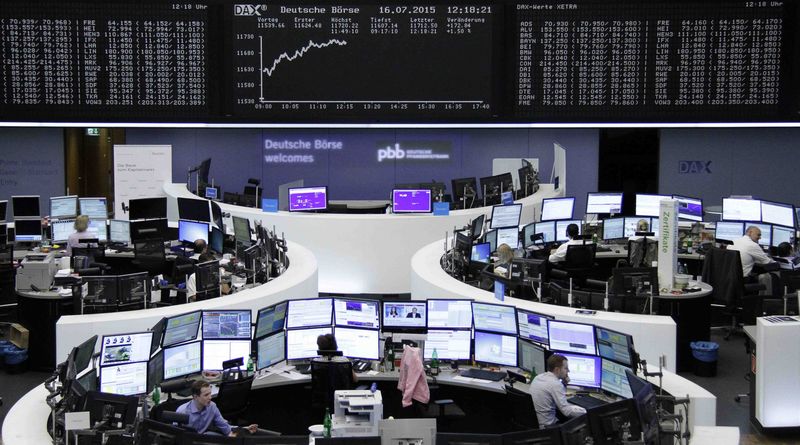By Alistair Smout
LONDON (Reuters) - The dollar was set for its biggest weekly rise since May on Friday as economic data reinforced expectations for a U.S. rate hike by the end of 2015, with euro zone shares steadying after strong gains as Greece looked set to secure a bailout.
The dollar steadied near a seven-week high against a basket of major currencies, receiving a boost against its peers after lower U.S. jobless claims. The dollar index is up 1.5 percent this week.
The euro hovered close to a seven-week low of $1.0854 hit in the previous session. The dollar touched a three-week high of 124.23 yen.
Investor attention has returned to gauging the timing of the next U.S. interest rate rise, with clues sought in U.S. CPI data and Michigan sentiment data later in the session.
"The focus is turning to the U.S. rate cycle, and (the market reckons) a September rate hike is still, if not probable, at least possible," said Adam Cole, global head of FX strategy at RBC Capital Markets in London.
"That's picked up from Greece as the main driver of our market and therefore the dollar is, in a fairly parallel move, stronger off the back of it ... From now the euro goes down primarily because the dollar is going up."
Euro zone shares were steady as a relief rally over Greece's bailout agreement ran out of steam. The Euro STOXX 50 was flat on Friday but has rallied 8 percent over the last two weeks, its biggest fortnightly gain since January.
German yields fell on Friday ahead of a parliamentary debate in Berlin to approve a government request to open talks on a new three-year bailout program for Greece. [GVD/EUR]
Following its successful passage through the Greek parliament, German lawmakers are expected to give Berlin a clear green light to start negotiations on a third bailout program for Greece.
Analysts said that with the risk of a Greek exit from the euro zone diminished, the market would refocus on monetary policy divergence between the Fed, which is pondering rate rises, and monetary easing by the ECB.
The timing of rate hikes was also in focus in Britain. Trade-weighted sterling hit a 7-1/2-yr high after Bank of England governor Mark Carney said the decision to raise interest rates from record lows will come into sharper focus around the end of this year, his strongest hint yet about the timing of the British central bank's next move.
The MSCI World Index, which tracks stocks from developed economies, is up 2.2 percent this week, its biggest weekly gain since May.
MSCI's broadest index of Asia-Pacific shares outside Japan was up 0.4 percent as Chinese shares recovered further after a series of government support measures to halt their recent crash.
Advancing for the second straight day, Shanghai shares were up 3.5 percent as of 0520 GMT.
"We suspected the 'national team' has continued buying shares today to prevent the market from falling," said Zhang Qi, a stock analyst at Haitong Securities in Shanghai.
"National team" has become a commonly used collective term in China for the government agencies, banks, brokerages and mutual funds that are committed to buy into the market until wider investor confidence is restored.
Although drastic government measures have managed to stem its slide, the benchmark Shanghai index is still down roughly 20 percent from a 7-1/2-year peak reached a month ago.
Japan's Nikkei rose 0.3 percent on a softer yen, up 4 percent on the week. South Korea's Kospi shed 0.5 percent on concerns second quarter corporate earnings could prove disappointing, particularly among ship builders.
Oil prices were steady on Friday in thin trade, underpinned by a power outage at Britain's largest oilfield, though risks of oversupply following the Iranian nuclear deal and mixed economic data held back prices.
